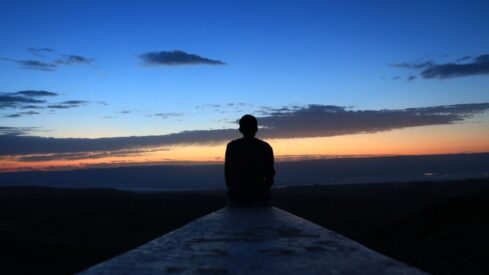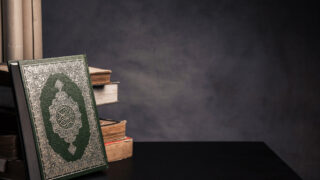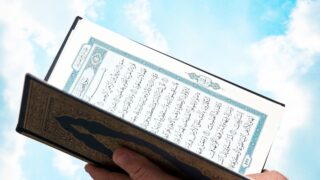Richard Dawkins said of religion: “I am against religion because it teaches us to be satisfied with not understanding the world.” Others think the same as Dawkins. And there are times when I meet some ‘religious’ people and almost sympathize with the Oxford academic.
Too many people hide behind religion in order not to think, or as Dawkins puts it, “Faith is the great cop-out; the great excuse to evade the need to think and evaluate evidence.”
But this is not the Quranic embodiment of faith. Rather, throughout the Quran, humanity is called upon to think, contemplate, ponder, reflect. God challenges human beings to engage all of the faculties at their disposal to make an assessment of the universe which they experience:
{Thus do We provide ayah (sign) for people who reflect} (Yunus 10: 24)
The word ayah is the word used for a Quranic verse. It is also the word used for a sign, an evidence – referring to the signs of the natural world. Thus the word ayah conveys the sense that revelation has two forms: the revealed word of God as in the Quran, and also what God reveals of His creative powers through the natural world.
Both forms of revelation work in harmony, and humanity is called to reflect on both. The Quran explicitly dedicates itself to a people who think, and so history has seen the great flourishing of science, technology, medicine, jurisprudence, and much more by those who were inspired and motivated by the Quran. The momentum created by the Quranic paradigm of engagement with the intellect was so great that it took eight centuries for it to even begin slowing down. However, we have profoundly disengaged from the Quranic counsel to reflect and contemplate, and thus we see the results of this disengagement in the appalling poverty – economic, social, intellectual and spiritual in today’s Muslim world.
Modern society is not conducive to reflection. We live in a world of instant news and minute-by-minute updates. We Tweet and we renew our Facebook status. We are plugged into our iPhones, iPods, Blackberries and other such devices. Satellite TV gives us constant news, and if that were not enough the web gives us second by second updates. So, what time is there to think about and process this information? No sooner have we begun to absorb and explore more deeply a topic, then along comes the next ‘breaking story’.
Islam is not for the Unconscious
Yet, this is when principle and a deep intellectual reasoning are most critical. When there is so much information to be processed, so many needs to be met, so many injustices to be righted, then we need to be at our most engaged mentally; this is the moment that we have to make sure decisions are not made purely on a whim or passion but on evidence, critical thinking and reflection. The process of thinking and reflecting brings to the fore the essential, the important, the fundamental – away from the distraction of the noise that surrounds us.
Only through such deep reasoning and reflection can we hope to make a profound impact on the world today, and for our faith to be truly realized within us and within the world. “The opiate of the masses,” was how Karl Marx described religion. This is definitely not the Quranic model. We cannot allow ourselves to be in slumber or drugged from the reality of the world. We must be alert, thinking, involved. If our experience of religion becomes too routine, too ritualized, too dogmatic then we are on the wrong road, however pious our outward appearance might seem.
The Quran demands us to be awake. “Arise and warn,” it ordered the Prophet Muhammad. The Prophet said: “Actions are judged by their intentions,” (Al Bukhari) which means our mental faculties have to be exercised; we have to be intellectually conscious. Islam is not for the unconscious. Our relationship with God is not about blind faith; it is not about stumbling through the world without thinking how and why we act in a certain way. We may hear and we may obey, but that must be predicated upon reflection and understanding, otherwise we are like sheep, bleating our way to nothingness.
So, read the Quran again, through different eyes, and renew the understanding of this great Book that dedicates itself to those who think and reflect.
By Sarah Joseph


















